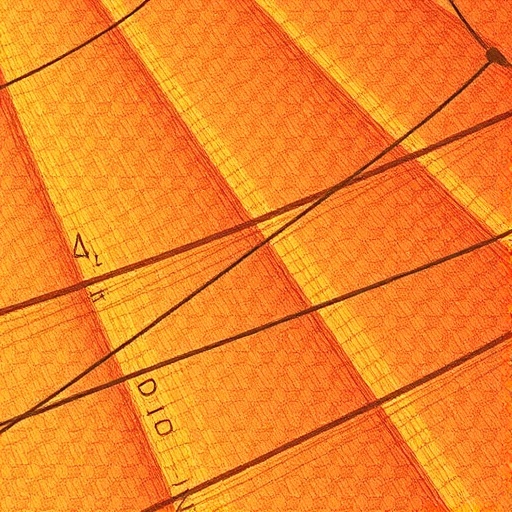
In recent years, the quest for energy storage solutions that are both efficient and sustainable has led researchers to explore various materials that could enhance the performance of supercapacitors. A pioneering study led by Kumar, Chand, and Sharma has revealed that copper-oxide flakes may serve as an innovative electrode material with significant implications for the future of energy storage technologies. This research, published in the journal Ionics, presents a comprehensive examination of the electrochemical performance of these flakes, shedding light on their potential application in supercapacitors.
Supercapacitors, known for their ability to deliver rapid bursts of energy, have become increasingly important as we transition toward renewable energy sources and electric vehicles. Unlike traditional capacitors, supercapacitors provide higher energy density, which allows them to store more electricity. The challenge has always been to improve the performance of these devices, and that is where copper-oxide flakes come into play. The study provides a detailed analysis of how these flakes could outperform conventional materials currently in use.
The researchers synthesized copper-oxide flakes using a straightforward chemical process, optimizing the parameters to achieve the best possible size and morphology. They found that the unique structure of the flakes contributed significantly to their electrochemical properties. Unlike bulk materials, these nanostructured flakes offered a high surface area, thereby allowing for more active sites for charge storage. By examining the flakes through various characterization methods, the researchers were able to confirm their potential as a highly efficient electrode material.
.adsslot_wbcoiYdH8J{width:728px !important;height:90px !important;}
@media(max-width:1199px){ .adsslot_wbcoiYdH8J{width:468px !important;height:60px !important;}
}
@media(max-width:767px){ .adsslot_wbcoiYdH8J{width:320px !important;height:50px !important;}
}
ADVERTISEMENT
Electrochemical performance is assessed using several metrics, including specific capacitance, energy density, and power density. The work by Kumar et al. demonstrated that the copper-oxide flakes exhibited remarkably high specific capacitance values when compared to other materials. This is crucial for supercapacitors, as higher specific capacitance translates directly into greater energy storage capabilities. The study discussed the importance of optimizing the nanoparticle size and distribution, suggesting that these parameters directly influence electrochemical performance.
Additionally, the researchers evaluated the cycling stability of these flakes under various conditions. Long-term stability is a fundamental requirement for any energy storage solution, as it directly impacts the longevity and usability of the device. The copper-oxide flakes demonstrated impressive cycling stability, remaining effective even after numerous charging and discharging cycles. This aspect alone positions them as a favorable candidate for commercial applications in supercapacitors.
When exploring the chemical properties of copper-oxide itself, the researchers highlighted the material’s abundance, low cost, and environmental friendliness. These factors make copper-oxide an attractive alternative to more expensive and less sustainable materials currently used in energy storage applications. The potential to scale up production of copper-oxide flakes could lead to more accessible supercapacitor technology, democratizing energy storage solutions.
The study also drew comparisons between copper-oxide flakes and traditional electrode materials such as activated carbon and metal oxides. While activated carbon has been widely used due to its large surface area and efficiency, copper-oxide flakes bring a new dimension that may challenge its dominance. The research emphasized the advantages of copper-oxide in terms of charge storage mechanisms and overall energy delivery.
In conclusion, the findings presented by Kumar, Chand, and Sharma offer a groundbreaking perspective on the future of supercapacitor technology. By harnessing the properties of copper-oxide flakes, we may be looking at a paradigm shift in energy storage methods, paving the way for devices that are not only more efficient but also aligned with sustainability goals. The implications of their research extend beyond just theoretical models; they open up pathways for practical applications in renewable energy systems, electric vehicles, and even consumer electronics.
As industries and researchers strive for more efficient energy solutions, studies like this are crucial in guiding the direction of future technological advancements. The interaction between materials science and electrochemistry explored in this research highlights the significant role that fundamental research plays in shaping the future of energy storage.
The comprehensive analysis provided by the study not only validates the performance potential of copper-oxide flakes but also sets a benchmark for future research in this field. Other researchers are now encouraged to delve deeper into optimizing this material, looking for additional avenues that improve energy density and efficiency in supercapacitors. This collaborative and cumulative scientific effort could ultimately lead to advancements that make energy storage more efficient, effective, and eco-friendly for generations to come.
In summary, the work of Kumar et al. stands as a testament to the ongoing innovation in energy storage technologies. With their findings, they have illuminated the path forward for energy researchers, showcasing how materials like copper-oxide flakes could revolutionize the supercapacitor landscape. As electrification continues to penetrate our lives, the demand for efficient and sustainable energy storage solutions becomes increasingly vital, making such research not only relevant but essential.
This new research sets the stage for further investigations into the fundamental properties of copper-oxide and how these might be leveraged in various environmental conditions. Ultimately, for renewable energy systems and portable electronics alike, the emergence of efficient and cost-effective supercapacitor materials could mark a significant step in achieving a more sustainable and energy-conscious future.
Subject of Research: Energy storage solutions using copper-oxide flakes for supercapacitors
Article Title: Electrochemical performance of copper-oxide flakes as an electrode material for supercapacitor applications
Article References:
Kumar, R., Chand, P., Sharma, S. et al. Electrochemical performance of copper-oxide flakes as an electrode material for supercapacitor applications. Ionics (2025). https://doi.org/10.1007/s11581-025-06586-6
Image Credits: AI Generated
DOI: https://doi.org/10.1007/s11581-025-06586-6
Keywords: Copper oxide, supercapacitor, energy storage, electrochemical performance, sustainable materials.
Tags: advancements in supercapacitor performancebenefits of supercapacitors in electric vehiclescopper-oxide flakeselectrochemical performance of materialsEnergy Storage Solutionsinnovative electrode materials for supercapacitorsoptimizing electrode materials for energy storageRenewable Energy Technologiesresearch on copper-oxide materialssupercapacitor electrode materialssustainable energy storage innovationssynthesis of nanostructured materials





